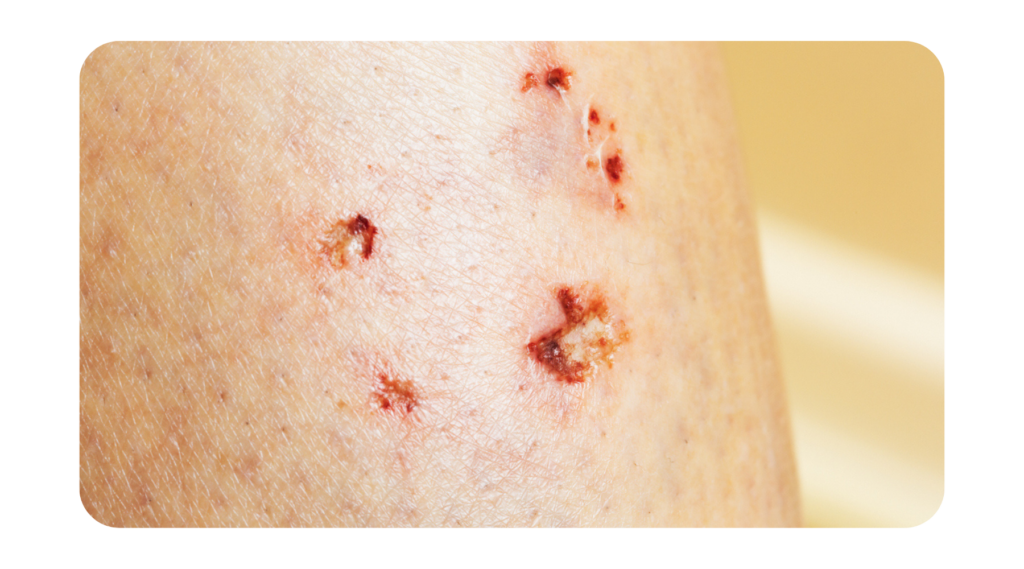Injured by a Dog on Someone Else’s Property?
Picture yourself visiting a friend’s house for a casual evening, only to be startled by their dog growling at you. Before you know it, the dog bites, leaving you injured, shaken, and unsure of your next steps. Dog bites can be both physically painful and emotionally overwhelming, especially when they happen on someone else’s property.
As the #1 state in the US for dog bites requiring an ER visit, California law offers a clear path for dog bite victims to seek justice, but it’s not without its complexities. Whether you’re dealing with medical bills, emotional trauma, or figuring out who is responsible, understanding the legal landscape is crucial.
California’s Strict Liability for Dog Bites
In California, dog owners are held to a strict liability standard. This means that a dog’s past behavior—aggressive or otherwise—is irrelevant. If someone’s dog bites you, the owner is usually liable. This rule simplifies matters for victims because proving negligence isn’t required. However, the situation can become more complicated when the bite occurs on private property.
For example, let’s say the dog’s owner doesn’t live at the property where the incident occurred. Could the property owner also bear some responsibility? The answer often lies in the specifics of the case, such as whether the property owner knew the dog was dangerous or failed to take reasonable precautions.
Property Owners and Dog Bite Liability
Property owners in California have a legal duty to maintain safe premises, including ensuring visitors aren’t harmed by dangerous dogs. If a property owner knew a dog posed a threat but didn’t take steps to prevent an attack—such as putting up signs, installing a fence, or warning visitors—they may share liability for the incident.
Consider a hypothetical landlord who allows a tenant to keep a dog with a known history of aggression; if the dog bites someone on the property, the landlord could be held partially responsible for failing to address the risk. This added layer of liability means that both dog owners and property owners need to stay vigilant to keep everyone safe from the dog.
Immediate Steps to Take After a Dog Bite

If you’ve been bitten by a dog, your priority should be your safety and health. Even a minor bite can lead to serious infections like rabies or tetanus. Here’s a quick guide to help you take action:
- Seek Medical Attention: Whether the bite seems small or severe, have a doctor examine it. Prompt treatment can prevent complications.
- Document Everything: Take photos of your injuries, the dog, and the location where the incident occurred. This evidence can be invaluable later.
- Identify Witnesses: Get contact information from anyone who saw the incident.
- Report the Bite: Notify local animal control. They’ll create an official record, which may be useful for your claim.
Taking these steps not only protects your health but also strengthens your position if you decide to pursue a claim.
Can You Sue the Property Owner?
In many cases, yes. If the property owner shares responsibility for the attack, you can include them in your claim. If, for instance, they allowed a dangerous dog on their property or failed to secure it properly, you might have a valid case against them.
A personal injury attorney can help evaluate the situation. They’ll examine factors like the dog’s history, the property owner’s actions, and your status as a visitor. Were you invited onto the property, or were you trespassing? These details can significantly impact your claim.
Navigating a Dog Bite Personal Injury Claim
 Filing a claim for a dog bite injury can feel overwhelming, especially if you’re recovering from physical and emotional trauma. That’s why it’s crucial to work with a legal professional who can guide you through the process. Here’s what typically goes into building a strong case:
Filing a claim for a dog bite injury can feel overwhelming, especially if you’re recovering from physical and emotional trauma. That’s why it’s crucial to work with a legal professional who can guide you through the process. Here’s what typically goes into building a strong case:
- Proving Liability: Evidence is critical. Photos of your injuries, medical records, and witness statements can establish what happened and who is responsible.
- Calculating Damages: A dog bite can lead to medical bills, lost wages, and even long-term psychological effects. Comprehensive documentation helps ensure you’re compensated fairly.
- Dealing with Insurance Companies: Many dog bite claims involve homeowner’s insurance. Policies often cover dog-related injuries, but navigating the claims process can be tricky. Insurers may try to minimize payouts or deny coverage based on breed restrictions or other exclusions.
The Role of Homeowner’s Insurance
In many dog bite cases, compensation comes from the property owner’s or dog owner’s homeowner’s insurance policy. These policies often cover medical bills and other damages caused by pets. However, not all policies are created equal. Some may exclude coverage for certain breeds or incidents involving aggressive dogs with a history of biting.
Reviewing the insurance policy and working with an attorney ensures you understand what to expect from the claims process. If insurance won’t cover the full cost of your injuries, pursuing legal action may be necessary.
Protecting Yourself After a Dog Bite with LMS Law
Being bitten by a dog on someone else’s property is more than just a painful experience—it’s a legal challenge. California’s strict liability law offers clear protections for victims, but knowing how to navigate the system is essential. Having an attorney not only helps with paperwork and negotiations but also ensures your rights are protected. They’ll fight for fair compensation for your medical bills, lost income, and emotional suffering.
If you are seeking experienced legal assistance in pursuing a dog bite case, LMS Law is here to help. We offer free case reviews to help you focus on healing while we fight for your rights. Call us today at (415) 400–7000, or reach out online to arrange a free consultation. We can meet you at your home or in the hospital if you are unable to come to us.
The above is not meant to be legal advice, and every case is different. Feel free to reach out to us at LMS Law if you have any questions. Information contained in this content and website should not be relied on as legal advice. You should consult an attorney for advice on your specific situation.
Visiting this site or relying on information gleaned from the site does not create an attorney-client relationship. The content on this website is the property of LMS Law and may not be used without the written consent thereof.
FAQs
What should I do immediately after being bitten by a dog?
It’s crucial to seek medical attention right away, even if the injury seems minor. Document the incident by taking photos and gathering witness information. Report the bite to local authorities or animal control.
Can I sue the dog owner if I was bitten on their property?
Yes, you may have grounds to sue the dog owner if they were negligent in controlling their dog or if the dog had a history of aggression. Liability can depend on state laws regarding dog bites.
What if the dog owner claims I provoked the dog?
If the owner claims you provoked the dog, it may affect the case’s outcome. However, the burden of proof lies with the dog owner to demonstrate that you acted in a way that provoked the attack.




